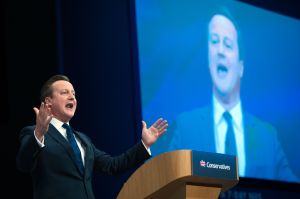Am now finally catching up on myself, with a short piece done yesterday for Prospect in response to Prime Minister Cameron’s speech at his party conference yesterday. Am also using this moment to also catch up on media posting, I spoke to the Press Association about ISIS and the UK’s response, to the Guardian about some of the Brits killed by drone strike in Syria, to the Daily Mail about Sally Jones online threats, while on the other side of the equation spoke to Newsweek about Xi Jinping’s statement to the UN about deploying peacekeepers, South China Morning Post and New York Times about the Bangkok bombing, to Die Zeit about Uighur terrorism, and McClatchy about the Chinese government’s response to Uighur extremism.
Extremism: focus on the positive
Raffaello Pantucci—Director of International Security Studies at the Royal United Services Institute
The Prime Minister has laid out a robust declaration of his intent to counter extremism. While little of the rhetoric is new, the fact that he is now able to deliver it from a position of confidence and strength means it is important to consider the detail of what he is saying.
The PM’s focus is one that very much tracks back from the front line of counter-terrorism (disrupting terrorist plots and networks) into the space of countering extremist ideas. While there is a confusing grey space between the two, where you draw the defining line of the law is something that varies depending on where you stand on the political spectrum. Clearly, the government is keen to push deep into the territory of confronting extreme ideas and wants to try to push such ideologies firmly into the illicit space. The question, however, is what the necessary relationship with counter-terrorism is. While few would dispute that those who practice such horrible acts as FGM or forced marriages in the UK should be prosecuted, it is unclear what relationship this specific behaviour has to those who are radicalised into terrorist networks.
The eagerness to confront conspiracy theories and the dissemination of incorrect information is a good ambition. The problem with confronting it in the space of extremism is that you are up against conspiracy theorists, who will pivot on a wisp of information into a spiral of obfuscation and confusion. Tackling such narratives in this space is not only difficult (since they are inherently intangible), but also ultimately pointless since no matter what is said they will find a way of pivoting away to contradict you and use your narrative to further strengthen their own. Cameron would do better to focus on the approach he also advocated of setting out what makes the United Kingdom great and focusing on that, rather than trying to correct those who are inherently bent on looking for something darker.



